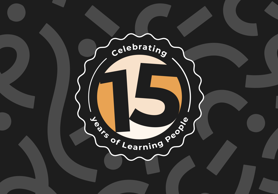From automation to advancement: Exploring the exciting job opportunities in AI
Are you fascinated by the world of Artificial Intelligence (AI)? With so many job opportunities in this rapidly evolving field, it’s an exciting world to explore. From automation to advancement, AI is revolutionising many industries and creating a host of new and exciting job roles.
We'll explore the wide range of career paths available in AI, highlighting the skills you need, the demand in the job market, and the potential for growth and innovation.
Job growth and demand in the AI industry
Just a decade ago, finding even a few job opportunities in AI was a challenge. But now, AI has captured the world’s interest, emerging as an exciting and rapidly growing field.
According to a report by Gartner, the number of AI-related job openings will reach an estimated 97 million by 2025, somewhat dispelling the widespread myth that 'AI is going to take away jobs'.
One of the primary reasons is the efficiency and cost-effectiveness that AI can bring to businesses. AI-powered automation can streamline processes, improve decision-making, and enhance productivity. From customer support chatbots to predictive analytics that optimise supply chain management, AI is transforming the way businesses operate, and a wide range of businesses are now looking at opportunities to use AI. As a result, professionals with AI expertise are now sought after in a variety of industries, including healthcare, finance, marketing, and manufacturing.
Types of job roles in AI
The job roles in AI are as diverse as the applications of AI itself. From AI Engineers who develop and implement AI systems to data scientists who analyse and interpret complex data sets, there are numerous career paths. Let's take a closer look at some of the most in-demand job roles in AI:
AI Engineer
AI Engineers design and develop AI systems, including algorithms and models, to solve complex problems. They work closely with Data Scientists and Software Developers to create intelligent systems with the ability to learn and adapt. This role is well-suited to those who enjoy problem-solving but also have the ability to communicate their knowledge to others. It’s a fast-paced and exciting role that’s in high demand.
Data Scientist
Do you love collecting, analysing, and interpreting large datasets? A data scientist uses statistical techniques and machine learning algorithms to uncover patterns and trends that inform decision-making. It’s a dynamic role, with time split between delving into data analysis and communicating insights to others.
Machine Learning Specialist
Machine Learning Specialists focus on developing and implementing machine learning algorithms and models to train machines. These machines then make predictions and decisions based on patterns in the data. It’s a highly skilled role that requires some serious training, but it’s ideal if you possess strong analytical skills, proficiency in programming, and a solid foundation in mathematics and statistics.
AI Ethicist
AI Ethicists ensure that AI systems are developed and used responsibly while considering factors such as privacy, bias, and fairness. It’s a great role if you have an interest in ethics, politics, and social responsibility. It also blends with corporate responsibility and HR, making it ideal for anyone transitioning from HR and admin roles in corporate businesses.
AI Product Manager
AI Product Managers oversee the development and launch of AI products and services. They work closely with cross-functional teams, including engineers, designers, and marketers, to ensure that AI solutions meet customer needs and business objectives. This managerial role is perfect for you if you thrive in project management, possess strong communication skills, and excel at meeting deadlines.
AI in healthcare
The healthcare industry is one of the sectors that stand to benefit the most from AI advancements. AI technologies can help healthcare professionals make more accurate diagnoses, improve patient outcomes, and enhance the efficiency of healthcare delivery. As a result, there is growing demand for professionals who can develop and implement AI solutions in healthcare settings, and many people are choosing to transition from traditional healthcare roles into AI healthcare roles.
So how is AI being used in medicine? AI algorithms can analyse images such as X-rays, CT scans, and MRIs to detect abnormalities and assist in the diagnosis of diseases. AI-powered chatbots can provide virtual healthcare support, answering basic medical questions and providing triage recommendations. Natural language processing algorithms can analyse medical records and extract relevant information to support clinical decision-making.
The potential for AI in healthcare is vast, and as the technology continues to advance, so will the job opportunities in this field. If you're interested in healthcare and can invest time in upskilling in AI, you'll be well-positioned to take advantage of these opportunities and contribute to improving patient care.
AI in finance
The finance industry is another sector that is undergoing significant transformation due to AI. AI technologies can automate routine tasks, allowing finance professionals to focus on more strategic activities. AI-powered algorithms can analyse financial data to identify patterns and trends, enabling better investment decisions and risk management.
Professionals with a strong background in finance and a solid understanding of AI technologies will be equipped to take advantage of the job opportunities in this field. And those who want to transition into an AI career from finance are in a strong position to enjoy the benefits of upskilling in AI.
Skills and qualifications required for AI jobs
For AI jobs, both hard and soft skills are important. You might already have soft skills like good communication and critical thinking, but you'll likely need to undergo training to learn the necessary technical skills.
Some of the skills that are needed for a career in AI include:
Programming skills: As an AI professional, it's important to master programming languages like Python or Java. Understanding key libraries and frameworks, such as TensorFlow and PyTorch, is also vital. This expertise forms the foundation for developing innovative AI solutions, aligning with your goal of advancing in this dynamic field.
Data analysis and visualisation skills: The ability to analyse and interpret complex datasets, as well as present findings clearly and visually, is important for AI professionals. Our Business Analyst to Data Analyst training is a great route to develop these vital skills.
People skills: It’s important to have the ability not only to effectively communicate complex AI concepts to a non-technical audience but also to collaborate with diverse teams. This enhances project outcomes and fosters an environment of growth and innovation. Our range of Soft Skills courses are a great add on for anyone considering a career in tech.
Industry knowledge: Having domain-specific knowledge in your industry or sector can be a significant advantage. Understanding the specific challenges and nuances of an industry aids in crafting effective AI solutions, offering a substantial edge to those transitioning to AI roles within their current field.
Problem solving and critical thinking: As an AI professional, critical thinking and problem-solving skills are essential. The capacity to view problems from various perspectives and devise creative solutions is invaluable.
Continuous learning: The field of AI is fast evolving, necessitating a commitment to staying abreast of the latest advancements and trends. A proactive approach to learning and adapting to new technologies is crucial for success in AI roles.
Are you eager to launch your career in Artificial Intelligence? Connect with our expert Career Consultants to discuss our comprehensive training and career support. With us, you’ll be taking the first step towards a dynamic, secure, and fulfilling career in AI.
Related Articles
 Tech
TechWhat is the history behind the cultural phenomenon of memes?
Discover the fascinating journey of memes from their academic origins to modern internet culture. Learn how these viral phenomena shape communication and influence society today.
Read More Tech
Tech15 years of student success with Learning People
From our first course to empowering over 40,000 students worldwide, Learning People is thrilled to celebrate 15 years of facilitating career transformations.
Read More Tech
TechBlack Mirror’s most accurate tech predictions (and what’s still sci-fi)
Discover which Black Mirror tech predictions have become reality, from AI and surveillance to social credit systems, and what’s still science fiction. Learn how to future-proof your tech career today.
Read More Tech
TechInclusivity in Cyber Security | An interview with Rob Black
In this insightful conversation, Rob Black, a prominent figure in the UK cybersecurity industry, discusses the importance of creating an inclusive and supportive environment for everyone, regardless of background or gender.
Read More
